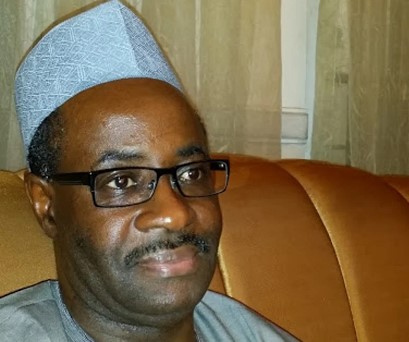-
Budget Office says zone received over 40% of FEC approvals.
-
DG Yakubu dismisses “misleading” Lagos-only claims.
-
Major projects include Kaduna Power Plant, Kano–Maiduguri Highway.
The Federal Government has revealed that the North-West geopolitical zone secured the largest share of Federal Executive Council (FEC) projects under President Bola Tinubu, amounting to N5.97tn out of a total of N10.92tn approved.
The Director-General of the Budget Office, Dr Tanimu Yakubu, disclosed this on Sunday, stressing that some online reports misrepresented Lagos as the main beneficiary.
ATTENTION: Click “HERE” to join our WhatsApp group and receive News updates directly on your WhatsApp!
Yakubu said, “The viral chart bundles together national infrastructure—federal highways, coastal transport corridors, and legacy roads—and labels them ‘Lagos-only projects.’ By that logic, the Kano–Maiduguri expressway could be called a ‘Maiduguri-only project.’ It is a sleight of hand that ignores the truth: these are national arteries, not local trophies.”
According to the breakdown, the South-South received N2.41tn, North-Central N1.13tn, South-West (excluding Lagos) N604bn, South-East N407bn, and the North-East N400bn.
The North-West, however, emerged as the single largest beneficiary.
Yakubu highlighted the revival of the 255-megawatt Kaduna Power Plant—conceived under the late President Umaru Yar’Adua but abandoned for years—as a flagship project in the region. He also pointed to the Kaduna–Kano expressway, the Kano–Maiduguri highway, and the Sokoto–Illela corridor as priority initiatives, alongside investments in education and security.
Meanwhile, the Minister of Information and National Orientation, Mohammed Idris, said the Tinubu administration had ensured balance and inclusivity in distributing projects.
“The government has demonstrated an uncommon commitment to fairness and equity since assuming office,” he said, citing the Lagos–Calabar Coastal Highway, the Badagry–Sokoto Highway, and the Trans-Saharan Highway as proof of nationwide spread.
READ ALSO: Labour Party Writes Tinubu To Arrest, Prosecute Peter Obi Over Treasonable Felony
According to Idris, more than 250,000 jobs are expected to be created through the various infrastructure projects.
The disclosure has rekindled debate on resource allocation and regional balance in project distribution. Analysts say the impact will depend on how quickly the projects are executed and how directly they improve lives across Nigeria.

